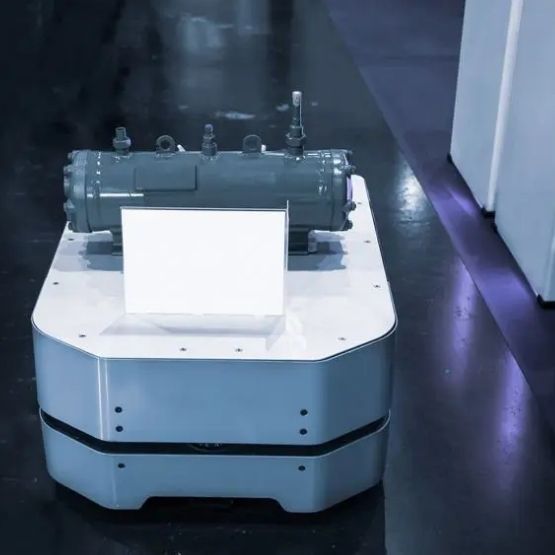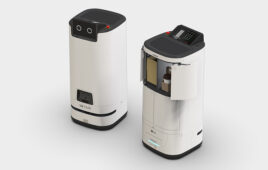|
Listen to this article
|

Powermat Technologies today raised $25 million in Series B funding to scale its wireless charging technology for use in robotics systems. The round was led by Foxconn Interconnect Technology (FIT) and Hudson Sustainable Group, which is a founding shareholder of Powermat.
Powermat’s wireless power is used with autonomous mobile robots (AMRs), consumer robots, industrial drones, medical robots and many other types of robots. Powermat develops wireless power technology based on magnetic induction, which is also known as inductive charging. Powermat’s wireless charging platform for robotics provides up to 600W of wireless power.
Powermat said its wireless power transfer eliminates the need for direct contact between robots and their docking & charging station. It allows robots to charge in proximity to their charging station without the need for accurate alignment or direct contact. The company offers turnkey reference designs and includes system interface integrations such as CAN/UART/BLE/Wi-Fi.
Powermat said its charging solutions can also be found in more than 800 million smartphones, 40 million embedded accessories, and 8 million cars worldwide. Global market leaders, including FIT, Flex, General Motors, Harman International, Kyocera, and Samsung are already using Powermat’s Technology.
“Access to power on a wireless basis is an essential element to the new mobility ecosystem, which is a business area of increasing focus for FIT,” said Thomas Fann, special assistant to the chairman, FIT. “OEMs and technology companies are looking for reliable, high performing, and cost-efficient wireless power solutions.
There are several other companies that develop wireless charging solutions for robots. Some of those companies include In2Power, Vicor, WiBotic, Wiferion.
In August 2021, WiBotic introduced new wireless chargers for drones and robots. The company’s technology was also involved in the first public demonstration of the MassRobotics interoperability standard, which took place at the FedEx DART lab. WiBotic wireless charging stations were available to all of the robots in the facility and were able to charge at the rate and specification for each individual robot.






Tell Us What You Think!